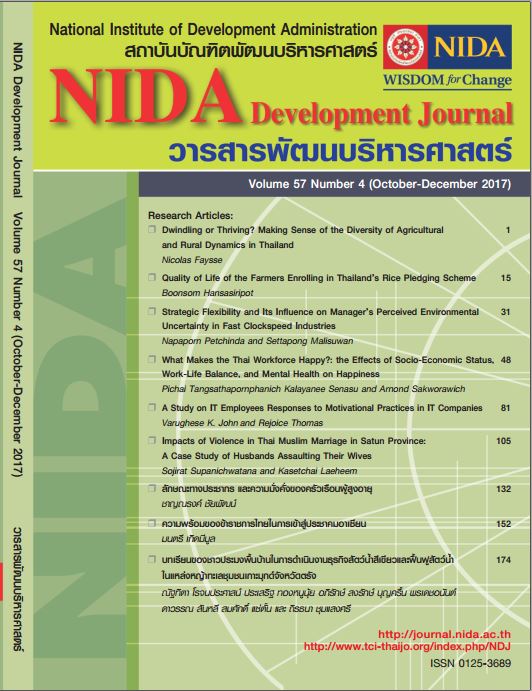Strategic Flexibility and Its Influence on Manager’s Perceived Environmental Uncertainty in Fast Clockspeed Industries
Keywords:
Clockspeed, Environmental, Flexible, Industry, StrategicAbstract
Business researchers claim that to react effectively to fast industry changes or fast clockspeed industries, a flexible form of organization is required. Strategic flexibility is the ability of organizations to be flexible and to minimize their risks by generating a variety of strategic options to swiftly react to unforeseeable business environment uncertainties. During recent years, strategic flexibility and environmental uncertainty have been extensively researched. Nevertheless, there are several gaps not discussed in this research. Firstly, past literature has somewhat been silent on the relationship between strategic flexibility and its impact on perceived managerial environmental uncertainty and regarding the success in turning environmental threats into opportunities, and ultimately thriving despite business environmental uncertainty. Therefore, the aim of this research is to study the relationship of strategic environmental with managerial perceived environmental uncertainty and managerial tolerance for ambiguity in fast clockspeed industries. The results of this qualitative research indicated that strategic flexibility has very little influence on decreasing perceived environmental uncertainty; however, managers’ tolerance regarding this uncertainty has increased as a result of creating more strategic options, thereby increasing strategic flexibility for their businesses.





